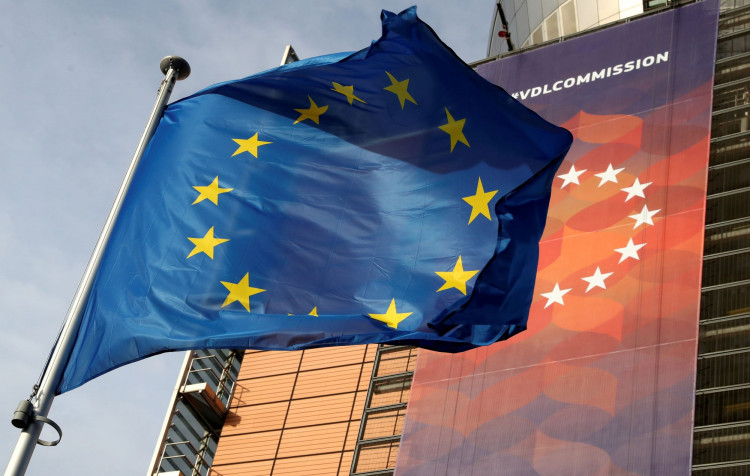A newly released report has urged citizens across the European Union to brace for potential crises, including the possibility of armed conflict, by stockpiling essential items like food, water, and medication. The report, authored by former Finnish President Sauli Niinistö and presented to European Commission President Ursula von der Leyen on Wednesday, calls for a shift from reactive to proactive preparedness, highlighting the need for both civilian and military readiness amid mounting security threats.
The 165-page report was commissioned by the European Commission as a response to lessons learned from the COVID-19 pandemic and Russia's invasion of Ukraine. It emphasizes the need for the EU to be better equipped to face future emergencies. "We do not have a clear plan on what the EU will do in the event of armed aggression against a Member State," Niinistö noted in the report, stressing that the looming threat from Russia necessitates making war preparedness a priority without ignoring other potential crises.
Niinistö recommended that households in the EU be prepared to be self-sufficient for a minimum of 72 hours, with essential supplies including food, water, medicine, flashlights, and battery-powered radios. This advice is part of a broader strategy to empower citizens to be at the forefront of crisis resilience. "Empowering citizens should be at the core of a comprehensive preparedness strategy," Niinistö wrote, encouraging EU member states to promote self-reliance and awareness among their populations.
The report also calls for significant financial investment to enhance the EU's defense and crisis readiness, suggesting that 20% of the bloc's total budget-approximately €1 trillion over seven years-be dedicated to these priorities. This substantial increase in defense spending is intended to demonstrate to allies, including the United States, that the EU is willing to bear its share of the burden in ensuring collective security. "If we are not doing all we can for our own security, we cannot expect others to do it for us," Niinistö wrote, emphasizing the need to send a strong signal to international partners.
During a press conference on Wednesday, Ursula von der Leyen reinforced the importance of a unified security strategy for the EU, stating, "The territorial integrity and political independence of every Member State are inextricably linked. If the security of one Member State is breached or its sovereignty violated, this directly concerns the other 26 and the Union as a whole." Von der Leyen's remarks echo Niinistö's call for enhanced coordination among EU members in responding to potential threats.
The report also tackles the critical issue of intelligence sharing, proposing the creation of a "fully-fledged EU service for intelligence cooperation." Such a move, though controversial given the sensitive nature of national security operations, is seen as crucial to improving the EU's ability to respond to cross-border threats. Von der Leyen acknowledged these challenges but argued that intelligence sharing would ultimately benefit all EU members. "We should build on improving the flow of information gathering and intelligence. It's in the interest of all of us," she stated.
The release of the report comes at a particularly tense time, with the U.S. presidential elections just days away. The possibility of Republican candidate Donald Trump reducing support for Ukraine or stepping back from NATO commitments has heightened fears across Europe, underscoring the need for the EU to bolster its own defense capabilities. "This is an important signal to the U.S. and other key partners," Niinistö said, underlining the urgency of European defense preparedness.
Niinistö also highlighted the need for greater cooperation and joint investments in defense across EU member states. The war in Ukraine has exposed critical shortcomings in Europe's military capabilities, with the European Commission estimating that an additional €50 billion is required over the next decade to maintain competitiveness with global military powers like the United States and China. Currently, fewer than one in five defense investments are made jointly, with the vast majority of procurement handled at the national level. "Member States should strengthen their cooperation on European defense, jointly investing more to close long-standing gaps in our military and defense industrial readiness," Niinistö urged.
In addition to boosting overall defense spending, the report emphasizes the importance of long-term support for Ukraine's defense industry to ensure stability in the region. Despite recent increases in defense budgets, Niinistö argues that more needs to be done to foster a cohesive defense strategy across the EU. "The territorial integrity and political independence of every Member State are inextricably linked. If the security of one Member State is breached or its sovereignty violated, this directly concerns the other 26 and the Union as a whole," the report reiterates.
The report concludes with a call for flexibility in implementing its recommendations, acknowledging that some proposals may be challenging to achieve consensus on across the bloc. Niinistö suggests that coalitions of willing member states could take the lead in advancing new initiatives when agreement cannot be reached at the EU level. "Many of the proposals made in this report will no doubt be difficult to reach consensus on among Member States. We should also be open to launch new initiatives enhancing preparedness, where needed only among willing Member States, to enable faster action," the report reads.






